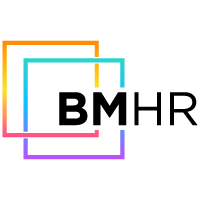BrightMatter Guides
Resolving the Productivity Paradox by Optimizing Your Approach to HR
In an era marked by rapid technological advancement and unprecedented economic changes, productivity has emerged as a perennial concern for HR professionals. Despite significant investments in employee engagement, experience enhancement, and well-being initiatives, the promised boost in productivity has often remained elusive. This enigma, known as the productivity paradox, underscores the need for HR to adopt a more strategic and holistic approach towards optimizing productivity within organizations.
Tackling the Productivity Paradox Head-On
To effectively address the productivity paradox, HR departments must first recognize the multifaceted nature of productivity enhancement. Beyond surface-level interventions, such as employee satisfaction surveys and wellness programs, lies a realm of strategic imperatives aimed at eliminating bottlenecks, refining performance strategies, and incentivizing behaviors conducive to productivity.
A cornerstone of this holistic approach is data analysis. By leveraging data insights, HR can pinpoint operational inefficiencies and identify opportunities for improvement. For instance, Microsoft’s observation of heightened productivity during unconventional hours prompted the company to offer support for after-hours work, empowering employees to capitalize on their peak performance periods. Similarly, Shopify’s Meeting Cost Calculator serves as a tangible reminder of the financial implications of excessive meetings, encouraging teams to streamline their communication channels.
HR must refine its metrics for gauging productivity. Traditional measures, such as hours worked or tasks completed, often fail to capture the nuances of modern workplace dynamics. Instead, adopting smarter goal-setting methodologies and utilizing advanced productivity tools can provide a more accurate reflection of employees’ contributions.
Resolving the Productivity Paradox
One such tool is Generative Artificial Intelligence (GAI), which holds immense potential in augmenting workforce productivity. Studies have shown that integrating GAI into business processes can yield remarkable efficiency gains. For instance, the integration of ChatGPT in writing tasks led to a 37% increase in productivity and a 20% improvement in quality. Similarly, a Fortune 500 software company witnessed a staggering 500% decrease in onboarding time, coupled with a 30% enhancement in work quality, following the deployment of GAI among its customer support agents.
HR’s role extends beyond reactive measures to proactive workforce planning. A critical impediment to productivity often stems from talent shortages and mismatches. As projected skills shortages threaten to incur substantial financial losses, HR must embrace strategic workforce planning initiatives to preemptively address these challenges. By tapping into diverse talent pools and cultivating robust talent pipelines, organizations can ensure a steady supply of skilled professionals, thus mitigating productivity bottlenecks before they arise.
Resolving the productivity paradox necessitates a paradigm shift in HR practices. By embracing data-driven insights, harnessing the potential of emerging technologies like GAI, and adopting proactive workforce planning strategies, organizations can unlock unprecedented levels of productivity. In doing so, HR not only fulfills its mandate of optimizing human capital but also propels organizations towards sustained growth and competitive advantage in an ever-evolving landscape.
***
About BrightMatter HR
BrightMatter HR is a Toronto-based Human Resources Outsourcing (HRO) provider that brings years of experience to delivering results-oriented, flexible HR solutions and employee management services. BrightMatter provides a personalized touch to HR outsourcing while focusing on modernizing your workforce, reducing your costs, and bringing peace of mind to employers and their growing teams.





